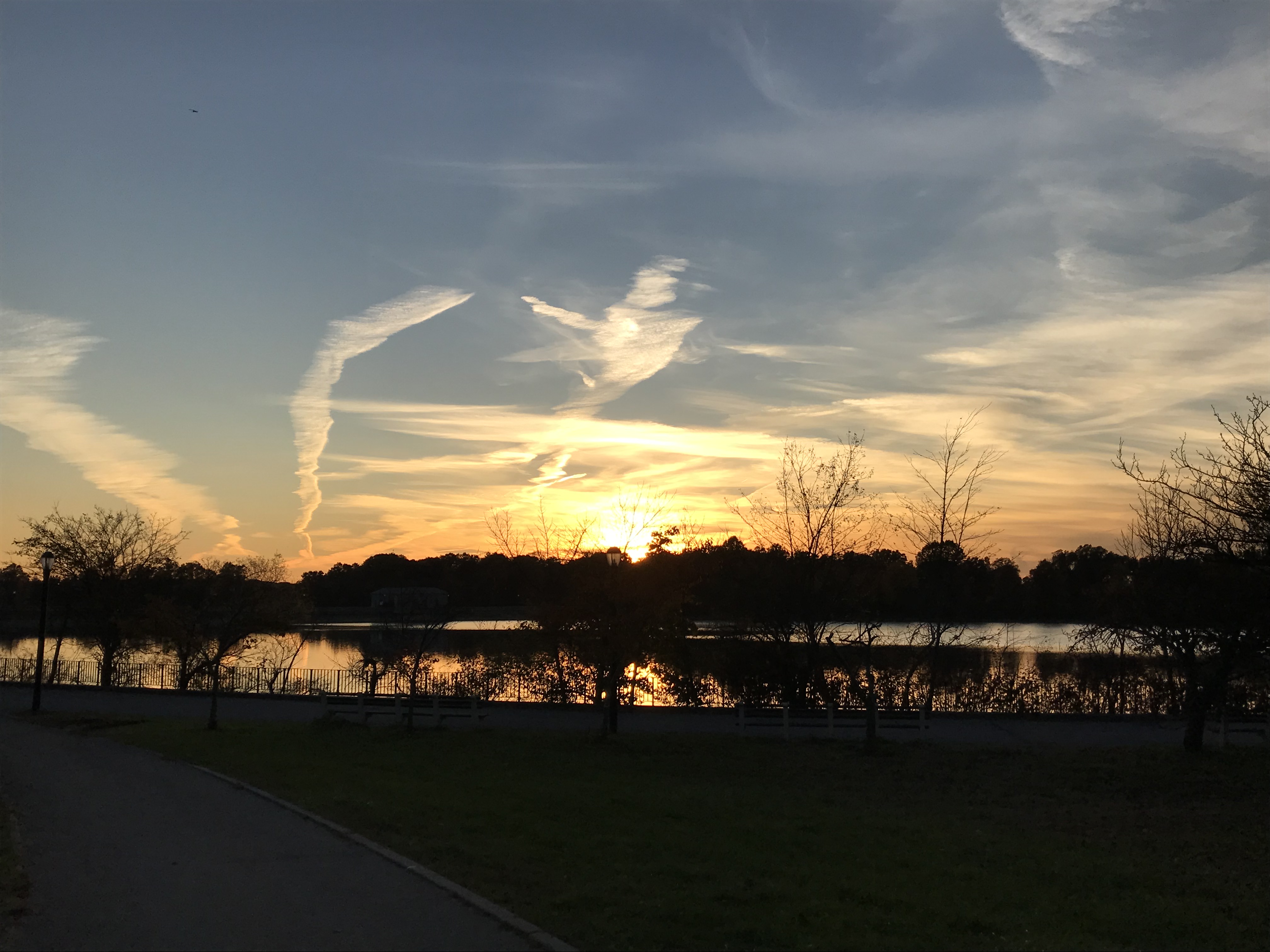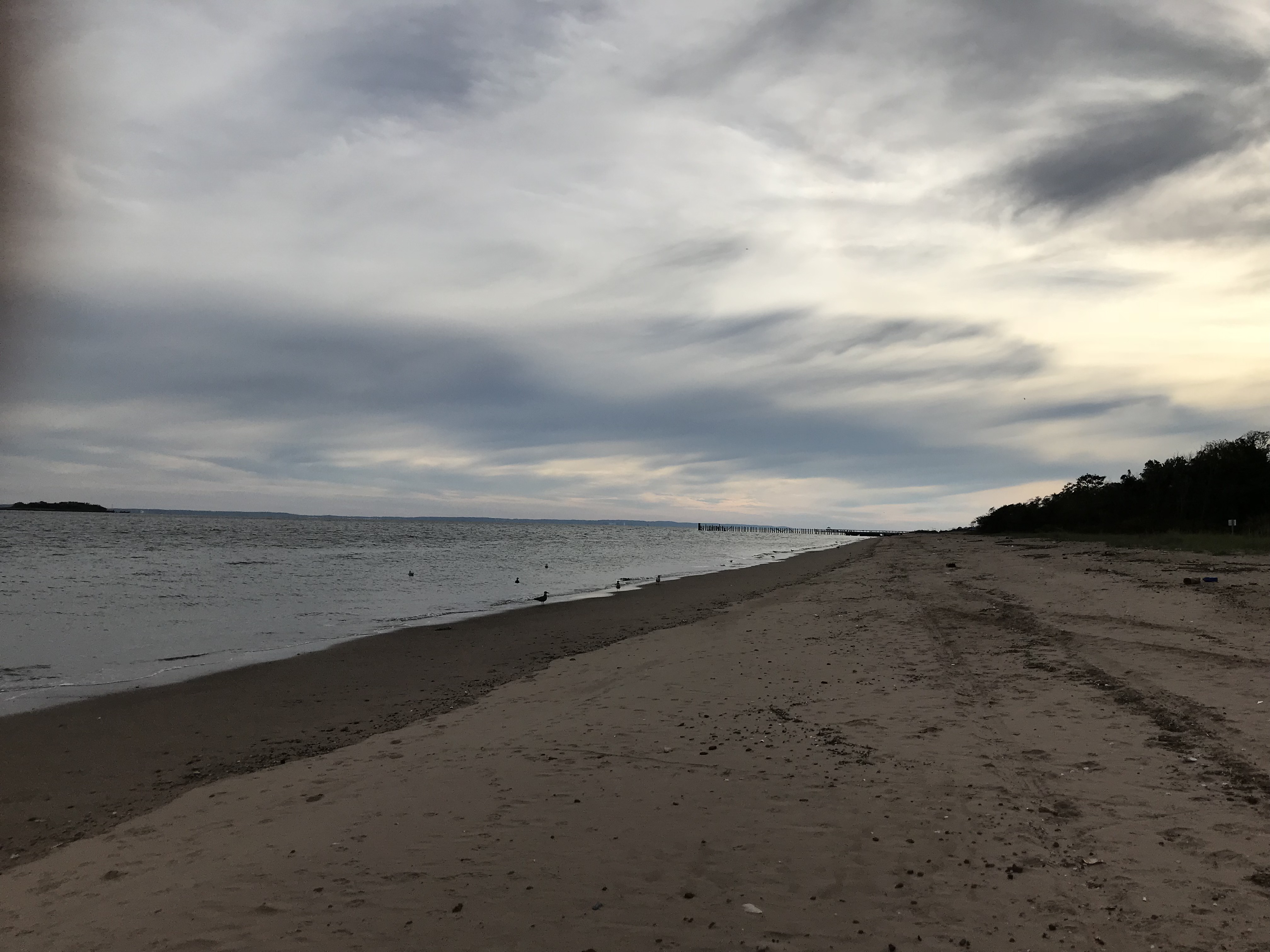I caught up with Bruce Springsteen’s Broadway show on Netflix the other day. It must have been a great experience to be in the theater with him. But it wasn’t too bad on the flatscreen. I was pretty amazed with the whole thing, especially his stamina and the details he remembers about his childhood.
That brings me around to the headline of this post, and it’s the title of one of Springsteen’s songs. He manages to imbue Freehold, New Jersey, with a mythical status. The Catholic Church and school, the Ford factory, the bars, his father, working men in general. I started to wonder why so much of my childhood is a blur. “He’s a poet,” said The Spartan Woman. He can mythologize his memories. Of course, in my mind, it came back to me, me, me. Am I just insensitive by not thinking too much about where I came from? Brain damaged by some of my old habits? Was it all just too long ago? Wait, Bruce is older than I…
I think part of the difference, apart from the obvious disparity in artistic ability, is that Springsteen came from a small town that was pretty well self-contained. I may have grown up on a hill on Staten Island, but our neighborhood was always part of a bigger whole: the island in particular, and New York City in general. So we, or at least I, didn’t have that sense of local-ness. Sure, we had our candy store and deli and bars, and there were places we kids went in the woods, at first for innocent play, and later for not-so-innocent partying, but we always knew that we were part of a really big place and that it didn’t just belong to us. Or at least it seemed when I first compared my memory to Springsteen’s.
Then again, Springsteen early on in his show says he made it all up. It’s his magic trick. And while he exaggerates, there’s some truth to his perceptions.
In any event, it got me thinking about the peculiar place I grew up in. It’s gotten a bad rap, often unfairly. Sure, there are jerks like the cast in MTV’s Jersey Shore and a lot of it is a badly developed wasteland of high ranches and strip shopping centers and bad Italian-American restaurants. But it’s also where the first tennis games were played in the U.S., where prohibitionists established a colony where they could be uplifted by concerts and lectures. It’s where the Catholic Worker Dorothy Day chose to live out her last days, and where Hair composer Galt McDermott lived and brought up his family–right in my neighborhood, in fact.
So I’m trying to remember details, if and why it’s a special place. I’m not going to get into a sweeping mythology like Springsteen does, but my Staten Island friends and relatives will probably agree that it’s quirky and molds its inhabitants—at least those with half a brain and some ambition—in certain ways.

Now, some geography, which shapes a place’s destiny: Compared to the rest of the city, Staten Island’s got a certain natural beauty that’s lacking in much of the city, from the Lower East Side to the high-rise sprawl of Queens. We’ve got hills, a whole chain of them from the northeast tip throughout the central spine. The master builder (and destroyer) Robert Moses met his end on Staten Island. The man who rammed destructive highways through outer borough neighborhoods didn’t do his due diligence: He drew a highway straight through miles of woodland and, coincidentally, one of the city’s most affluent neighborhoods. That neighborhood, Todt Hill, rose up, enlisted celebrity aid, and put an end to his fevered highway dreams.

The hills are one thing; the other big feature is, for want of a better term, its island-ness. There’s a certain sense of isolation, of self-containment. (Like Freehold? Hmm…) Island dwellers around the world feel it. You know in a way that you can’t get lost. Go long enough in one direction and you’ll hit a natural barrier—the water. It’s what makes Manhattan Manhattan, too. Look across a crosstown street and you see where the land ends and the Hudson or East Rivers flow. You know you’ve got limits. When I first started to drive around in Umbria, I was disoriented because I could go for hours in one direction and not hit the water. I had to learn how to tell where I was by looking at the mountains and hills.

On the micro level, I grew up on one of those hills. Staten Island, like everywhere around it, was originally made up of small towns. Our was Dongan Hills, now grandly called Dongan Hills Colony, to distinguish the hilly part of town from the plebeian lowlands. Back in my childhood, though, it wasn’t full of McMansions, it was a place with some old colonial-type houses, the odd farmhouse, and a bunch of new houses that gradually took over from the thick woods. And those woods were where we kids spent most of our time outside. We knew every footpath, probably dating from the Native Americans who lived there hundreds of years ago. We’d just go hiking, or play hide and seek, or imagine we were partisans in the hills resisting invaders.

Back on the street, it was a hill full of recent European immigrants, from Italy, Ireland, Germany, and Scotland. We got used to hearing people with accents—my own father spoke, and still speaks with an Italian accent and often wonderfully fractured syntax. They brought their habits across the ocean with them. The guy across the street, a big man named Josef, was a devoted practitioner of the European aperitif hour. At about 6 every evening, he made the rounds, checking into his friends’ and neighbors’ houses, accepting a drink, or a bite. We saw it as totally normal that Joe would drop by. Later on when I was a teenager coming home from some revelry, he returned the favor. He’d be sitting on his screened in front porch late in the evening, with a cooler full of beer. “Anthony,” I’d hear, “come over for a nightcap.” He’d offer me a weiss bier, something light he’d say, and we’d sit around and talk about…I don’t know, honestly. It didn’t matter; it was always a grace note to a night of fun.
And then, my parents’ house. It’s funny to hear how my cousins remember it. To us, it was just where we lived. But my parents were the young ones in my mother’s extended family, and we were, relatively speaking, the hipsters. While my aunts and uncles strictly oversaw their kids’ interests and habits, we were like wild animals, free to do what we wanted to do. My poor cousin Noel had to play the accordion; I got a guitar and Beatles sheet music. My parents had a New Year’s Eve open house and invited everyone they knew. It was a big raucous party spread throughout the house, with people dancing downstairs to Motown on my sister’s dance floor (my father built it for her, complete with barres along two sides). After midnight, my father would channel his father and fry up sfingi, or what Neapolitans call zeppole–fried dough to soak up the night’s alcoholic overindulgence. When I turned 16, my parents gave me what would probably get them arrested now, a pizza and beer blast, complete with a keg. They invited all my friends and our extended family. (They also gave me a gold watch, which I soon lost. Nice things are mostly a lost cause for me.)
So, was how we lived a product of the geography that surrounded us? I think so. We liked to think of ourselves as special, or at least different. And the hills and self-containment of the island back that supported that feeling. Maybe it was just that back then, a few decades back, people were just more interesting, and not mere manipulators of what’s on the screen in front of them. We had to move around in the space we were in, or we’d die of boredom. Or, I like to think, we had more of an opportunity to wander and to dream, and to imagine the kind of person we’d like to be and the life we wanted to live. And the surroundings, as well as the tolerance shown by parents and other figures of authority, let us do just that without much interference.
Hey, maybe we’ve all got an interesting life story to tell, if only we stopped to think about it. Whatdya think, Bruce?